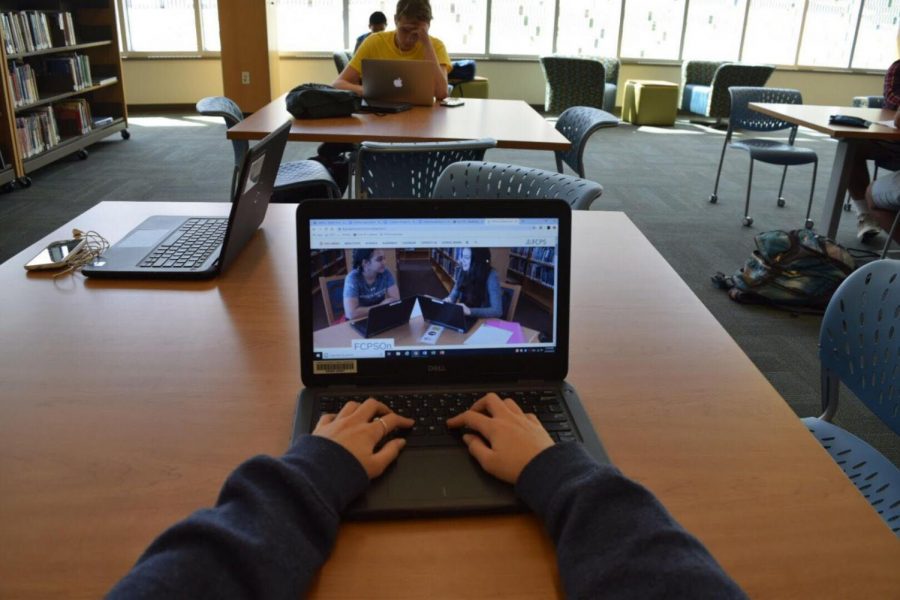Computing the pros & cons of FCPSOn
Langley students weigh the pros and cons of FCPSOn
This year marked the first time that all FCPS high school students began the school year with a personally-issued laptop. The goal of this program is to provide a computer to every FCPS high school student in 2019-2020, every middle school student by 2020-2021, every 5th and 6th grader by 2021-2022, and every 3rd and 4th grader by 2022-2023. However, FCPSOn’s high price point of $30 million over five years begs the question as to whether this initiative is worth it or not.
Many Langley teachers seem to be enjoying the addition of a new learning tool to the classroom that is both easy to use and cuts down on paper usage. “I feel the FCPSOn initiative is an extremely helpful learning tool. Previously, I taught in a school where I had a cart of laptops in my classroom, and I found that to be very useful when planning lessons and units,” sophmore English teacher Scott Barycki said.
Barycki also voiced his support for the program because it reduced paper use. “This technology has allowed me to increase collaboration and research opportunities, and I have also cut down on the amount of paper copies I distribute to my students,” said Barycki. Reducing paper usage across all of FCPS high schools could greatly reduce the school system’s carbon footprint and help the environment.
Some Langley students were also pleased with the new addition of the personal computers. “The laptops have been very helpful in school, allowing us to do stuff we couldn’t do easily in the past. This includes working on projects in class with your group face-to-face, and accessing blackboard easily in class,” sophmore Robert Kinkhead said.
However, one Langley parent felt that providing computers to the younger grades may not be effective. Kids and teens age 8 to 18 spend an average of more than seven hours a day looking at screens, according to the American Heart Association (AHA). AHA recommends parents limit screen time for kids to a maximum of just two hours per day. “Research I’ve seen shows that limiting screen time during peak brain development is important, so putting younger kids in front of a screen more at school seems counter-productive,” said Langley parent, Martha Blue.
Blue also questioned the utility of giving all students laptops instead of just those who wanted them. “Focusing where the money was spent on kids who needed them versus those who already had their own would have made more sense. So many Langley kids already carried their own (often lighter) laptops that these are adding weight to already heavy backpacks, and that money could have gone to schools with higher need or to teacher salaries or other educational purposes,” said Blue.
FCPSOn seems like a worthy initiative for high school students, but may need further input from the community in order to refine the scope of the program. Decisions such as the age children should be issued laptops and whether all children should receive them might be a good discussion to have at a Fairfax County Board meeting.


